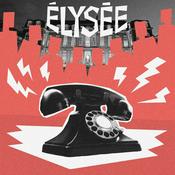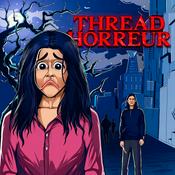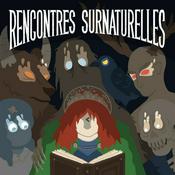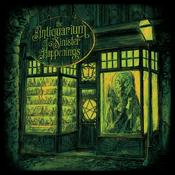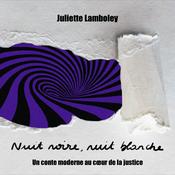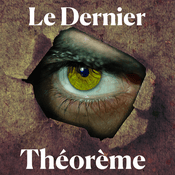283 épisodes
ANNE OF THE ISLAND Chapters 33 (He Just Kept Coming and Coming) & 34 (John Douglas Speaks at Last)
01/2/2026 | 17 minIn today's episode of Anne of the Island by L. M. Montgomery, we follow Anne Shirley as her journey is marked by change and growth during her transition toward adulthood. While substitute teaching at Valley Road, Anne has been a silent observer of a placid courtship that seemed to have no end. In "He Just Kept Coming and Coming," the mystery of John Douglas's two-decade-long silence is explored, illustrating the complexities of evolving friendship and the poignant nostalgia of a life spent in waiting. Finally, as we reach "John Douglas Speaks at Last," the narrative beautifully captures the intertwining of love, friendship, and the challenges of newfound independence that define Anne's continuing journey.
Credits
Host and Producer by Gizelle Erickson
Executive Producer Jon Hagadorn
Music: Thanks to Luis_Humanoide "Victorian Violin Waltz" Music by Luis Humanoide from Pixabay
LibriVox Recording by Rachel Ellen- In today's episode of L. M. Montgomery's Anne of the Island, we rejoin Anne Shirley as she returns to the life of a country 'schoolma'am' at Valley Road. Boarding at Wayside with the thrifty soul Janet Sweet, Anne enjoys a world of feather-beds and lavish feasts, though she is slightly haunted by a parlor decorated with five preserved coffin plates.
While the local social scene is quiet, save for a youth offering peppermints, Anne becomes a passive spectator to the courtship of Janet and John Douglas, a man whose face reveals a patient, humorous endurance. However, during a tea with John's mother, an angelic woman who claims to have been dying by inches for twenty years, Anne catches a glimpse of John looking like a tortured man, hinting at a hidden weight behind their long-standing placid courtship.
Credits
Host and Producer Gizelle Erickson
Executive Producer Jon Hagadorn
Music Thanks to Luis_Humanoide "Victorian Violin Waltz" Music by Luis Humanoide from Pixabay
LibriVox Recording by Rachel Ellen 'THE SHADOW' VINTAGE RADIO MYSTERY NOW PLAYIING M-W-F AT 1001 GHOST, CHILLER & LOVECRAFT
23/1/2026 | 3 minJoin host Gizelle Erickson every Monday, Wednesday and Friday at 4pm ET at 1001 Ghost, Chiller & Lovecraft Podcast as she introduces the nuances of every episode of America's favorite vigilante radio serial 'The Shadow' as Lamont Cranston and his sexy sidekick Margot Lane bring all the lowlifes and sleazeballs who never thought they would be punished to justice. Take the Shadow challenge and listen to the first five episodes like I did to really get an understanding of the show and you'll be a fan!
Apple Link: https://podcasts.apple.com/us/podcast/1001-ghost-chiller-lovecraft-stories/id1516332327
Spotify Link: https://open.spotify.com/show/5P4hV28LgpG89dRNMfSDKJ- In today's episode, we bring you two chapters. Join Anne Shirley during a season of profound transitions, beginning with the long-awaited wedding of her "bosom friend," Diana Barry. As Anne ties the pink roses—the "flowers of love and faith"—into the bridal bouquet, she must confront the bittersweet reality that while their bond remains, the world of their youth is irrevocably changed by the responsibilities of adulthood. Amidst the "white-woven enchantment of moonlight" in Lovers' Lane, a familiar camaraderie returns with Gilbert Blythe, yet Anne finds herself feeling like a "stranger in Avonlea," mourning the "glory and the dream" of a childhood that has passed away forever.
Seeking a fresh perspective, Anne journeys to Valley Road to substitute teach, where she encounters the delightfully robust Mrs. Amelia Skinner. Mrs. Skinner's own "real romantic" tale of choosing the poor but beloved Thomas over a wealthy suitor offers a poignant reminder that "folks can't get along together in this world without a little bit of love" to smooth the way.
Credits
Narration and Production by Gizelle Erickson
Executive Producer Jon Hagadorn
Music:
Thanks to Luis_Humanoide "Victorian Violin Waltz" Music by Luis Humanoide from Pixabay - In this installment of Anne of the Island by L. M. Montgomery, covering "Mutual Confidences" and "A June Evening," the girls at Patty's Place share deeply held secrets just as the shadow of April examinations falls. Phil announces she is the happiest girl in the world after accepting Jonas Blake. Anne, however, struggles with her own bewildering heart, questioning if life with Royal Gardner, the hero of her dreams, might be somewhat uninteresting. As Diana's wedding approaches, Anne, sitting under the spice and bloom of a June evening, realizes that it is a most dreadful thing to go out of the world without being missed, and sighs over the fact that people have to grow up, and marry, and change.
Follow us on Social Media
Instagram: 1001stories_from_the_gildedage
Facebook: 1001 Stories from the Gilded Age Podcast
Reddit: 1001 Stories from the Gilded Age
LinkedIn: 1001 Stories from the Gilded Age
Credits
Narration and Production by Gizelle Erickson
Executive Producer Jon Hagadorn
Music:
Thanks to Luis_Humanoide "Victorian Violin Waltz" Music by Luis Humanoide from Pixabay
Thanks to Music_For_Videos "Romance" Music by Anastasia Chubarova from Pixabay
Plus de podcasts Fiction
Podcasts tendance de Fiction
À propos de 1001 Stories From The Gilded Age
1001 Stories From The Gilded Age (Formerly 1001 Greatest Love & Life Stories) brings you a wide mix of classic short stories and long-form family-friendly novels, a perfect mix of timeless classics from another age - when life was slower, men and women dressed well in public, , and courtesy, manners, and morals were practiced. From this age comes great stories from woman authors as well as popular stories such as The Secret Garden, Anne of Green Gables and Black Beauty. Our "Gilded Age' collection spans mostly from 1875-1929. Please share with a friend! Now narrating Anne of The Island (3rd in Anne series) every Sun and Wed at noon Eastern, and new short stories every Fri at noon ET.
Site web du podcastÉcoutez 1001 Stories From The Gilded Age, Les Maîtres du mystère ou d'autres podcasts du monde entier - avec l'app de radio.fr

Obtenez l’app radio.fr gratuite
- Ajout de radios et podcasts en favoris
- Diffusion via Wi-Fi ou Bluetooth
- Carplay & Android Auto compatibles
- Et encore plus de fonctionnalités
Obtenez l’app radio.fr gratuite
- Ajout de radios et podcasts en favoris
- Diffusion via Wi-Fi ou Bluetooth
- Carplay & Android Auto compatibles
- Et encore plus de fonctionnalités


1001 Stories From The Gilded Age
Scannez le code,
Téléchargez l’app,
Écoutez.
Téléchargez l’app,
Écoutez.


